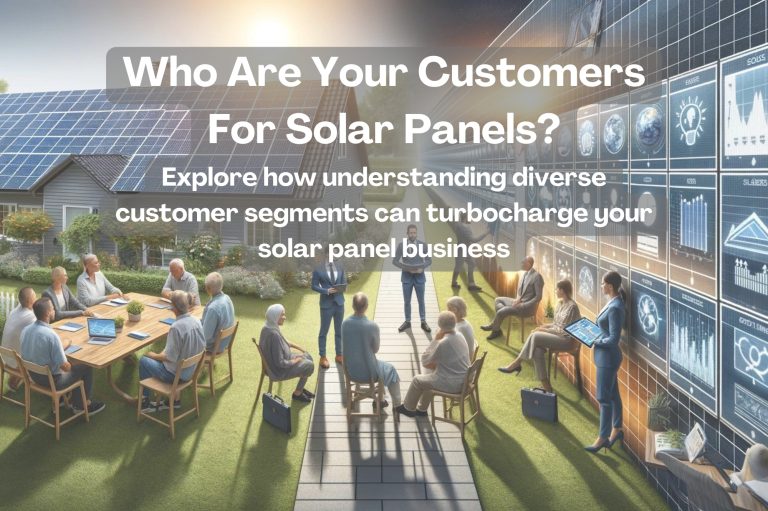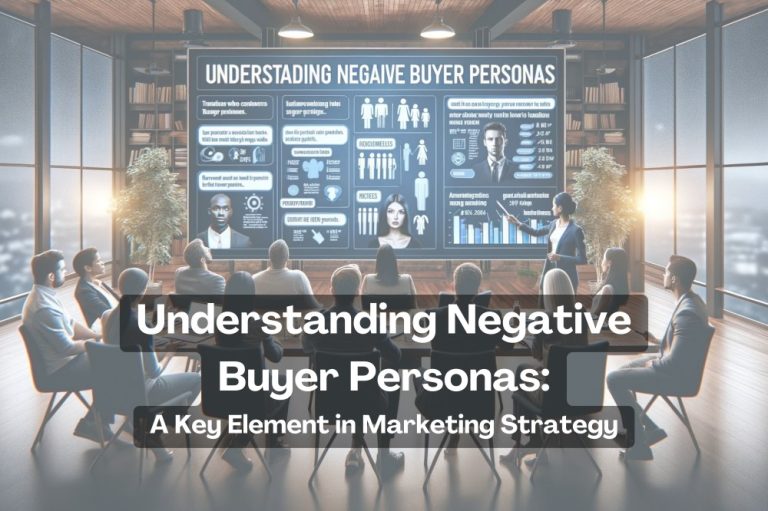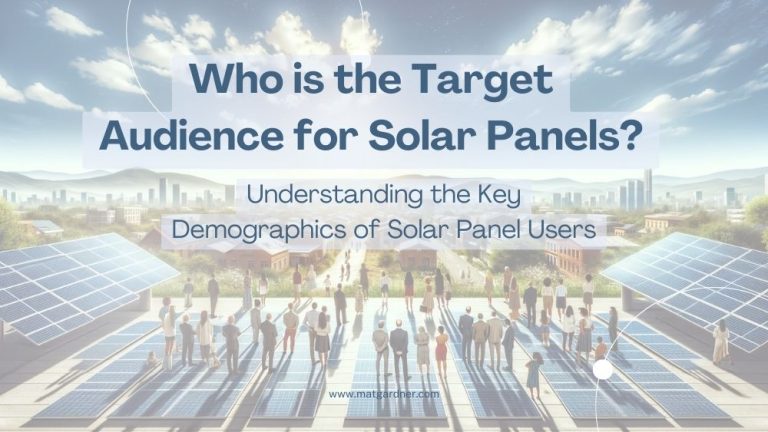Who Are Your Customers For Solar Panels?
Have you ever wondered, “Who is most likely to buy solar panels?”
Knowing your audience is like knowing the right ingredients for a masterful dish—it makes all the difference.
This article serves up a full plate of insights into the diverse customer segments for solar power, helping solar panel companies and installers identify and target their ideal consumers effectively.
Eco-Conscious Homeowners
Characteristics:
These individuals usually own their homes and are deeply invested in sustainable living.
They are typically middle to upper-middle-class, educated, and willing to invest in long-term savings through environmentally friendly solutions.
Why they invest in solar:
- Environmental Impact: Reducing their carbon footprint is a priority.
- Energy Independence: They aim to be less reliant on the grid.
- Cost Savings: Interested in decreasing long-term energy costs.
Small to Medium Business Owners
Profile:
Entrepreneurs and business owners who are keen on cutting operational costs and showcasing a commitment to sustainability.
These individuals look at solar power as a way to not only save money but also boost their business’s green credentials.
Attracted by:
- Reduced Operating Costs: Direct impact on their bottom line.
- Sustainability Image: Enhances brand reputation among eco-aware consumers.
- Tax Incentives: Potential for significant tax benefits.
Retirees
Description:
Older adults looking for ways to reduce expenses and stabilize their cost of living. Solar energy appeals to them because it can offer financial predictability and low maintenance.
Reasons for choosing solar:
- Fixed Income Management: Helps manage living costs on a fixed budget.
- Low Upkeep: Minimal maintenance required.
- Sustainability: Contribution to a greener planet for future generations.
Real Estate Developers
Who are they?
Developers focused on enhancing property value through modern and sustainable technologies. Solar installations can differentiate their properties in competitive markets.
Benefits they seek:
- Increased Property Value: Solar panels can significantly increase real estate value.
- Attractiveness to Buyers: Modern buyers are increasingly interested in sustainable living solutions.
- Regulatory Compliance: Meeting ever-tightening building regulations.
Government Facilities
Insight:
Managers of public buildings look to reduce public spending and achieve sustainability targets through solar power installations.
Why solar is appealing:
- Cost Reduction: Long-term savings on energy expenses.
- Public Responsibility: Demonstrating commitment to sustainable practices.
- Energy Reliability: Ensuring operations during power outages.
Educational Institutions
Characteristics:
From primary schools to universities, educational institutions are adopting solar to reduce costs and educate about sustainability.
Drawn by:
- Educational Tool: Solar power as part of STEM education.
- Cost Management: Reducing long-term operational costs.
- Environmental Leadership: Setting an example for students and the community.
Rural Homeowners
Profile:
Those living in remote or rural areas where grid access is unreliable or expensive. Solar power offers them a chance at energy independence and reliability.
Attracted to solar because:
- Reliability: Consistent energy supply without relying on external grids.
- Self-Sufficiency: Generating their own power fits with a lifestyle of independence.
- Cost Efficiency: Long-term savings are critical in areas with high energy costs.
Commercial Building Owners
Description:
Owners of commercial properties who are looking to reduce energy costs and improve the sustainability profile of their buildings.
Why invest in solar:
- Operational Cost Reduction: Major incentive to switch to solar.
- Tenant Attraction: More tenants are demanding green building features.
- Property Value: Enhances the marketability of their buildings.
Large Industrial Facilities
Who are they?
Operators of large industrial complexes with massive energy needs, focused on cost reduction, compliance, and sustainability.
Solar benefits:
- Massive Cost Savings: Reduces large-scale energy expenses.
- Compliance with Regulations: Meets environmental standards.
- Sustainability Goals: Supports corporate responsibility objectives.
Tech-Savvy Young Professionals
Profile:
Young, educated urban dwellers who value modernity, efficiency, and sustainability. They prefer smart technology integrations in their living spaces.
Drawn by:
- Smart Home Compatibility: Integrates with home automation.
- Lifestyle Fit: Aligns with a modern, tech-oriented lifestyle.
- Environmental Impact: Reduces their ecological footprint.
Conclusion
Identifying your target customer not only sharpens your marketing efforts but also aligns your business strategies with market needs.
From eco-conscious homeowners to large industrial facilities, each segment offers unique opportunities for solar panel companies and installers to expand their reach and impact.
FAQs
- Who is most likely to buy solar panels?
Eco-conscious individuals, forward-thinking businesses, and public sector entities looking to cut costs and adopt sustainable practices. - What type of person buys solar panels?
Those who value sustainability, technological integration, and energy independence, ranging from young professionals to retirees. - Who is most likely to use solar energy?
Homeowners, businesses, and educational institutions that aim to reduce their environmental impact and energy costs. - What demographic buys the most solar panels?
Middle-aged homeowners and business owners looking for long-term savings and environmental benefits. - Why do retirees invest in solar energy systems?
For the cost stability, low maintenance, and the opportunity to contribute to a sustainable future.



